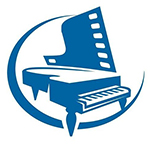In many places in the United States and Europe studios are at the apex of their teaching year. Festival season followed by many of the exams will take place between March and May. Here in North Carolina, the fun begins with State Festival coming in just two short weeks. Before we know it, there will be music that can and should be put away and new repertoire selected.
Now is a good time to plan for a creative and fulfilling part of the school year between March and June. What music should you chose? What about the plan for the May/June end of school year recital? I always like to start fresh at this point. What haven’t the students played? Many festivals and exams have required lists to chose repertoire from. That’s good, but of course, there’s so much more out there.
Particularly in the intermediate levels there are many composers that need to be introduced to provide a full and rich program. The Schumann Album for the Young, Op. 68 comes to mind. It’s not just for intermediate students. A preview of pieces after number 20 offers a rich variety of advancing literature for even your more advanced students. The bonus is the pieces are relatively short, which allows for a 3 or 4 month learning cycle. Some of the final pieces of the set are never heard nor performed. The Fugue is a full-bodied piece and would make an impressive encore for even the most seasoned concert artist.
Festival literature often include perhaps a few of the Chopin Preludes or one or two of the shorter nocturnes. How about one of the Nocturnes by John Field? These are gems and so important to include before delving into longer more involved Chopin. For our younger students the early “beginner” Chopin books offer a mix of early preludes, mazurkas (the most accessible ones) and waltzes. Now would be a great time to assign some early Chopin to learn for the spring recital or even a summer program.
Most importantly this year is the anniversary of Beethoven’s birth 250 years ago. Between IMSLP offerings and early Beethoven works available in multiple repertoire books there’s something for everyone! My studio is planning a Beethoven celebration for fall. Certainly by April I will be assigning that literature to assure that even with summer vacations we can be ready by October.
The list of possibilities is endless. So hit your shelves and see what you have in storage that you’ve forgotten about and add in some new pieces. So many of the Beethoven and Chopin pieces are available in single sheets! That’s a cost savings to your students, particularly if you don’t plan to follow-up on that particular composer. I once had a teacher that suggested that a student should be learning something from Chopin all the time–it’s how he built his technique. It’s a point considering when purchasing a book of intermediate level Chopin. The beauty of cycling a composer through the studio is that many of your students will have an even amount of knowledge on which you can build.
Perhaps Beethoven could be a choice given the anniversary month and one other composer. Which students in your studio are capable of learning something from that composer? If you split the literature across the studio, then when 2021 comes around, you know that your core students have covered an equal amount of that particular composer and you can select another one or two composers to focus your studio teaching. The beauty of piano is the rich reservoir of musical treasures and endless possibilites to explore. Enjoy your shopping trip through the literature–what a joy for all of us!
